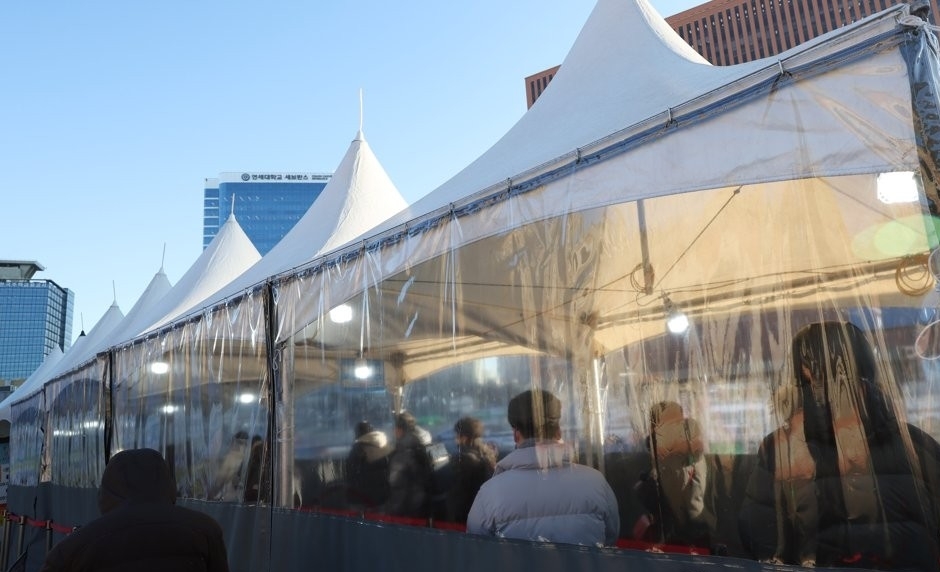 |
This photo, taken Jan. 14, 2022, shows people waiting in line to take COVID-19 tests at a testing site near Seoul Station in Seoul. (Yonhap) |
South Korea's daily coronavirus cases stayed above 4,000 for the fourth consecutive day Saturday, as health authorities keep a tight vigilance with the extension of strict social distancing measures for three more weeks.
The country added 4,423 new COVID-19 infections, including 4,077 local infections, raising the total caseload to 687,984, according to the Korea Disease Control and Prevention Agency (KDCA).
The country reported 22 more COVID-19 deaths, raising the death toll to 6,281, according to the health authorities. The fatality rate came to 0.91 percent.
The number of imported cases was tallied at 346, down from a daily high of 409 reported Friday.
The number of critically ill COVID-19 patients came to 626.
The health authorities have been on high alert as concerns persist over a possible resurgence of the virus due to the fast spread of the omicron variant and ahead of the Lunar New Year holiday late this month.
The government has decided to maintain a 9 p.m. curfew on restaurants and cafes while raising the limit on the size of private gatherings to six from the current four. The revised rules will be in place from Monday through Feb. 6.
To fend off imported cases, the health authorities decided to ban all entrants' use of public transportation upon arrival and tighten rules on the proof of negative COVID-19 test results. The measures will go into effect Thursday.
On Friday, the government began administering U.S. drug giant Pfizer Inc.'s Paxlovid antiviral COVID-19 treatment pills, a day after the first batch for 21,000 people arrived in South Korea.
Patients with a compromised immune system and those aged over 65 are on the priority list, the KDCA said.
South Korea has secured Pfizer's medication for 762,000 people, as well as oral pills made by U.S. drugmaker MSD for 242,000 people, with the second batch of Paxlovid for 10,000 people to be shipped by the end of this month, according to the government.
As of Saturday, 43.47 million people, or 84.7 percent of the country's 52 million population, have been fully vaccinated, and 23.02 million, or 44.9 percent, have received booster shots, the health authorities said. (Yonhap)







![[Robert Fouser] Accepting migrants in South Korea](http://res.heraldm.com/phpwas/restmb_idxmake.php?idx=644&simg=/content/image/2024/10/31/20241031050896_0.jpg)
